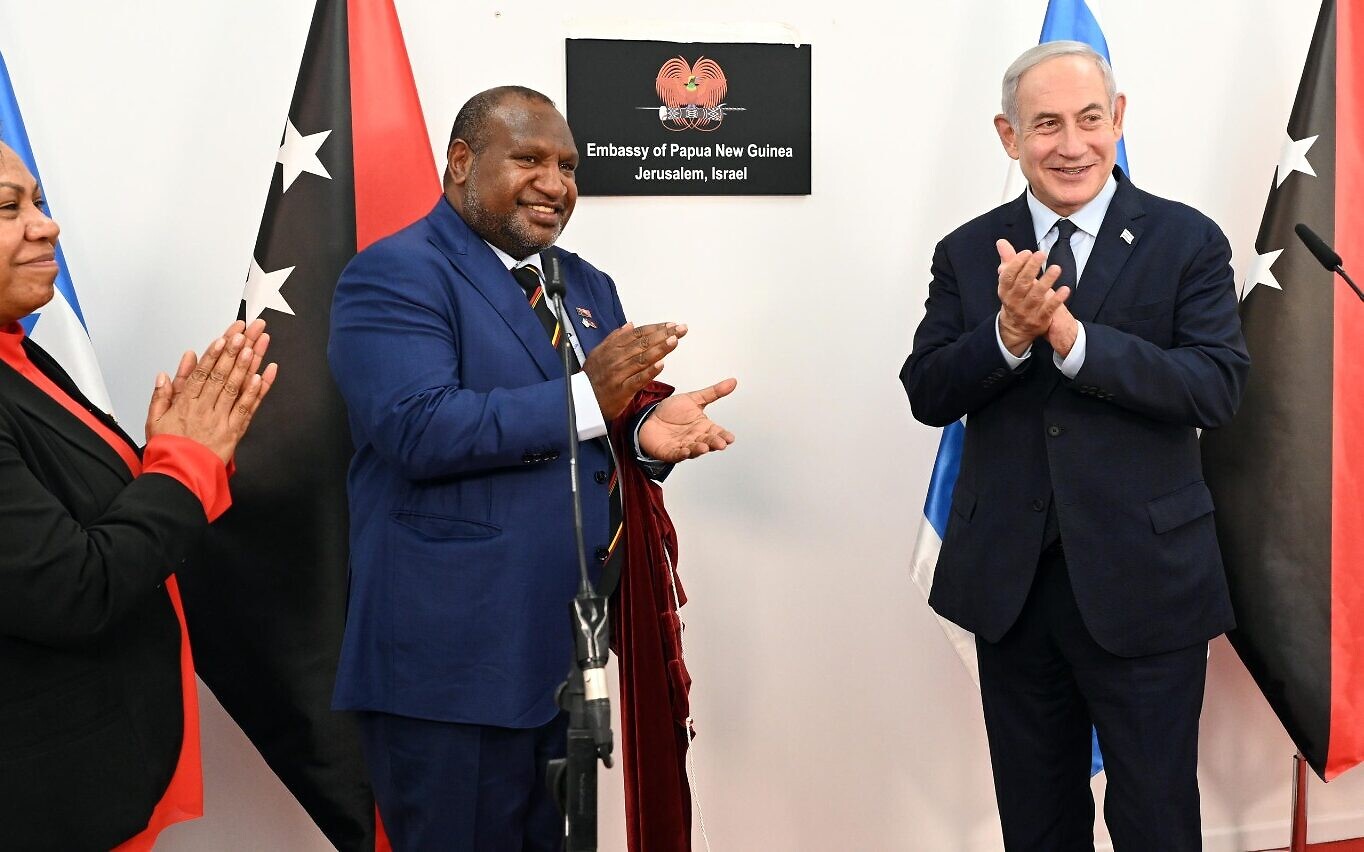PNG's Controversial Shift: Examining the Jerusalem Embassy Decision
The recent condemnation of the Hamas attack on Israel by Prime Minister James Marape and Foreign Affairs Secretary Elias Wohengu reflects their commitment to denounce violence in the contemporary world. Marape emphasizes the incompatibility of war-related violence with modern values, while Wohengu characterizes the Hamas attack as “barbaric, unprovoked, atrocious, and callous”. Importantly, Wohengu also calls upon Israel to exercise greater care in protecting civilians in Gaza.
However, PNG's distinctive foreign policy approach has raised concerns within the international community. Marape and Wohengu have not officially acknowledged PNG's bold move to open its embassy in Jerusalem, a decision that defies international law and UN Security Council resolutions. Hamas Spokesman Jehad Taha has brought attention to this breach and urged PNG to reconsider its ties with Israel. Notably, the Marape Government has not yet issued a formal response to this critique.
Criticism extends beyond Hamas, with the Palestine Ministry of Foreign Affairs and Expatriates, the Organization of Islamic Cooperation, and Jordan condemning PNG's decision. They perceive PNG's actions as aggressive towards the Palestinian people and their rights, hindering the prospects of achieving peace through a two-state solution. Furthermore, they categorize PNG and the United States as allies of Israel, thereby designating them as adversaries.
Domestically, the Opposition Leader Joseph Lelang cautioned Prime Minister Marape, expressing concerns about the wisdom of opening the embassy. He pointed out that not many countries worldwide have moved their embassies from Tel Aviv to Jerusalem. Lelang called for transparency in explaining the strategic interests served by this decision for the nation as a whole.
PNG's current foreign policy stance concerning Israel appears to be predominantly influenced by religious considerations rather than a secular analysis of the situation. Prime Minister Marape asserts that recognizing Jerusalem as the universal capital of the Israeli people and nation is crucial to preserve PNG's identity as a Christian nation. This perspective is echoed by religious leaders, such as Pastor Joseph Walters, who represented the Christian community during the embassy's opening in Jerusalem. They believe that strengthening connections with Israel will bring blessings to the country, as promised by God in the book of Genesis. The Christian populace shares this sentiment. Pastor Peter Harut, representing a Christian Zionist group, emphasizes the long-awaited nature of this decision, underscoring its profound significance in a religious context.

Photo from The Times of Israel
In contrast, the previous government under Peter O'Neill adopted a more secular perspective. In 2018, PNG voted against the US recognition of Jerusalem, prioritizing global peace over religious considerations. Then Foreign Affairs Minister Rimbink Pato emphasized the UN's longstanding stance for Israel to coexist peacefully with its neighbours, with the aim of facilitating peace talks without the added complexity of the capital city issue.
During O'Neill and Pato's tenure, PNG's foreign policy approach to the Israeli-Palestinian conflict aligned with the principle of 'Friends to all and enemies to none' and their central foreign policy vision of 'Connecting for peace and prosperity in a changing world.' Under their leadership, PNG joined 128 other UN member countries in rejecting the contentious proposal by then-US President Donald Trump to recognize Jerusalem as Israel's capital. Several Pacific nations, including the Marshall Islands, Federated States of Micronesia, Nauru, and Palau, sided with the United States on this matter, while Australia, Fiji, Kiribati, Tuvalu, and Vanuatu chose to abstain from the vote.
The shift in PNG's foreign policy may have played a role in provoking Hamas and triggering recent violence. This change involved opening an embassy in Jerusalem and accepting financial support from Israel, potentially influencing the Operation Al-Aqsa Flood. Notably, Prime Minister Marape, who was part of the O'Neill Government in 2018, altered the policy for religious reasons, despite his understanding of the previous UN vote's rationale. This transformation highlights the increasing influence of religious groups in the country.
The absence of advice from PNG's Ambassador to the UN and various government entities, such as the Department of Foreign Affairs and security sector agencies, raises crucial questions about the risks associated with opening an embassy in Jerusalem. If such advice was indeed provided, the decision-making process within the Marape Government warrants scrutiny.
Furthermore, the contrast between Marape's emphasis on the importance of the international community uniting under the UN charter and human rights principles and his government's disregard for several UN Security Council resolutions and the stance taken during the 2018 UN General Assembly vote raises concerns about the coherence of PNG's evolving foreign policy.
The Marape Government's foreign policy shift has taken PNG into uncharted territory in international relations. In this new and potentially precarious era, it would be advisable for the country to develop a comprehensive Foreign Policy White Paper, aligned with the National Security Policy and the Defence White Paper. Such a document should outline how PNG plans to address the challenges arising from the deteriorating situation in Israel and its evolving role in the international arena.
Comments
Post a Comment